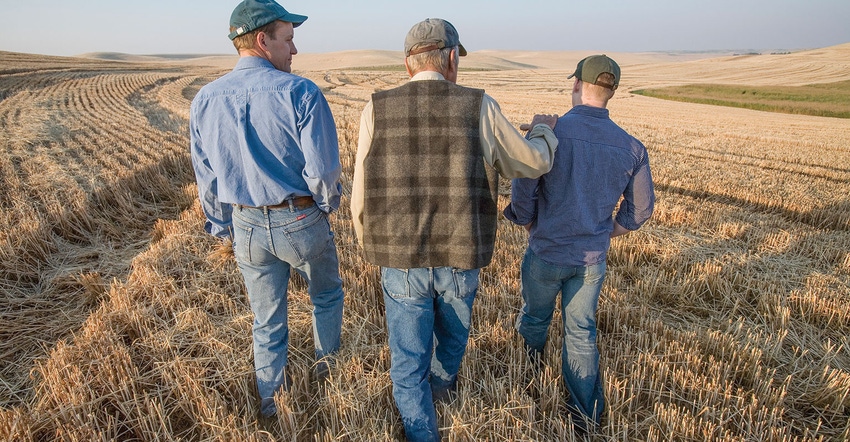
It’s a dream for most farmers — knowing their children and even grandchildren will one day run the business they’ve worked so hard to create.
AgriLegacy, a consulting firm that counsels producers on preparing for the future, says more than 80% of farmers want to see their operations go to the next generation.
But here’s the bad news. Less than 20% of family farms actually have a viable plan in place to make that happen.
“Succession planning is a very difficult topic to approach because it can be so overwhelming and wrought with emotional stress,” said Ron Hanson, Harlan Agribusiness Professor Emeritus at the University of Nebraska-Lincoln. “No one wants to talk about any of this, and, consequently, nothing gets done. But empty chairs happen.”
Hanson has spent more than 40 years working with farm families as they navigated the transition of management from parents to children. He’s seen family conflicts get ugly fast. The most troubling case involved five siblings and seven lawyers. After three years in court, everything the parents had worked for was gone.
“The most common mistake I see is that parents assume everything will just work out,” Hanson said, as he spoke to producers during the recent Tennessee Grain Conference. “It’s best to have a well-defined plan in place, that is communicated with all adult children in advance.”
No one can predict an unexpected loss. That’s why it’s best to have a plan in place before those sudden events occur. With the Biden administration’s proposed changes to the capital gains tax and stepped-up basis, farm families may have even more incentive to start succession planning now.
Map out transition plan
Hanson said the first step to successfully mapping out a transition plan involves parents identifying and agreeing upon a vision for passing on the farm to the next generation.
“Once the parents’ vision is in place, they need to take charge, sit down with all adult children at the same time and start talking,” Hanson said. “During this family meeting allow everyone an opportunity to express feelings and ideas and plans. Never assume you know how someone else feels about a situation.”
Next, family members should work together, writing down thoughts and ideas to begin drafting a plan. The plan can always be revised later, but it’s important to put the vision into words.
When the plan is set, recruit a management team to make sure the vision will be properly implemented. This team will include a tax accountant, an attorney to draw up legal documents, a farm lender to assist with financial planning for the younger generation, and an estate planning specialist to make sure parents have a safe and secure retirement.
Hanson also advises families to place a deadline on completing the process.
“A goal without a deadline is nothing more than a dream,” Hanson said. “That’s why so many family farm goals never get accomplished.”
Expect the unexpected
If you’re part of a farm that has been in your family for multiple generations, Hanson said you’re fortunate. Data from AgriLegacy shows only 30% of family farms ever make it past the second generation. Only 12% of second-generation farms make it past the third generation, and of those farms only 3% make it past four generations.
“To put those numbers in perspective, if we had 10,000 farms today, in four generations only 12 would still be in the same families,” Hanson said.
Keeping a farm in the same family for multiple generations is rare and made even more challenging when sudden changes in ownership and management occur.
“Start talking now. Put farm business agreements in writing, and be as transparent as possible,” Hanson said. “No one likes surprises. Keep everyone informed and involved in the process.”
To learn more from Ron Hanson, you can visit his website, passingonthefarm.com.
About the Author(s)
You May Also Like






